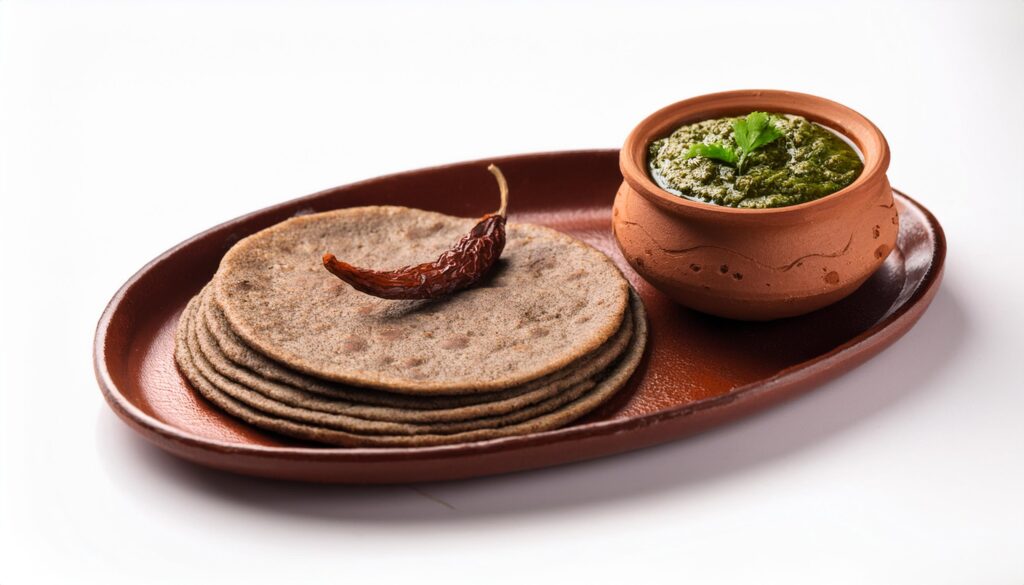Ragi, also known as finger millet, is a powerhouse of nutrients that offers numerous health benefits. This ancient grain has been a staple in many parts of the world, particularly in India, due to its rich nutritional profile. For women, ragi presents a range of advantages that support overall health and well-being. Women looking for options to incorporate healthy food options in their diet should consider ragi. Let us explore the 7 most important benefits of Ragi for women’s health.
Benefits of Ragi for Women’s Health
1. Improves Bone Health
Ragi is exceptionally high in calcium, which is crucial for maintaining strong bones and preventing osteoporosis. Having natural calcium-rich food becomes especially important for women as they age and during post-menopause. Regular consumption of ragi helps in maintaining bone density and strength.
Ragi, or finger millet, is exceptionally beneficial for women’s bone health due to its high calcium content. It is one of the richest plant sources of calcium, which is essential for maintaining strong bones and preventing osteoporosis, particularly in postmenopausal women. Additionally, ragi contains vitamin D and phosphorus, both of which are crucial for calcium absorption and bone mineralization. The magnesium in ragi further supports bone density and health. Regular consumption of ragi can thus significantly contribute to better bone health, reducing the risk of fractures and bone-related diseases in women.
2. High Iron Content

Ragi is rich in iron, which is essential for preventing anemia, a common issue among women. The iron in ragi helps in boosting hemoglobin levels, ensuring better oxygen transport in the body. Ragi, or finger millet, is highly beneficial in combating iron deficiency, particularly in women, who are more prone to conditions like anemia.
Ragi is rich in iron, making it an excellent dietary choice for boosting hemoglobin levels and improving overall blood health. The presence of vitamin C in ragi aids in the absorption of iron, enhancing its effectiveness in preventing and treating anemia. Regular consumption of ragi can help alleviate symptoms of iron deficiency, such as fatigue and weakness, thereby promoting better energy levels and overall health in women.
3. Enhances Digestive Health
Ragi’s high dietary fiber content promotes healthy digestion, preventing constipation and supporting gut health. The fiber also aids in weight management by promoting a feeling of fullness and reducing overall calorie intake. Ragi, or finger millet, significantly benefits digestive health due to its high dietary fiber content.
The abundant fiber in ragi aids in promoting healthy bowel movements, preventing constipation, and ensuring regularity. It also helps maintain a healthy gut microbiota by acting as a prebiotic, fostering the growth of beneficial gut bacteria. Additionally, the slow digestion and absorption of ragi help regulate appetite and sustain energy levels, which can aid in weight management. By incorporating ragi into the diet, one can support overall digestive health and enhance gut function.
4. Helps in Diabetes Management
Ragi has a low glycemic index, making it an ideal food for women with diabetes or those at risk. It helps in managing blood sugar levels effectively. Ragi, or finger millet, is highly beneficial for managing diabetes due to its low glycemic index and high dietary fiber content. The low glycemic index ensures that ragi is digested and absorbed slowly, preventing rapid spikes in blood sugar levels.
Its high fiber content aids in maintaining steady glucose levels by promoting the gradual absorption of sugars into the bloodstream. Additionally, ragi is rich in polyphenols and antioxidants, which help in combating oxidative stress, a common issue in diabetic patients. Incorporating ragi into the diet can thus support better blood sugar control and overall diabetes management.
5. Antioxidant Properties
Ragi contains antioxidants like polyphenols and flavonoids, which help combat oxidative stress and reduce the risk of chronic diseases such as diabetes and heart disease. Ragi, also known as finger millet, is a rich source of antioxidants, including polyphenols and flavonoids. These antioxidants play a crucial role in neutralizing harmful free radicals in the body, thereby reducing oxidative stress and preventing cellular damage. The health benefits of these antioxidants include a lower risk of chronic diseases such as heart disease, diabetes, and cancer.
6. Lactation Support
For lactating mothers, ragi can enhance milk production due to its high calcium and essential amino acid content. Ragi, also known as finger millet, is beneficial for lactation due to its rich nutritional profile, particularly its high calcium and iron content, which are essential for nursing mothers.
Calcium supports bone health, while iron helps prevent anemia, which can be crucial during breastfeeding. Additionally, ragi is high in dietary fiber, aiding digestion and overall health. Studies have shown that incorporating ragi into a lactating mother’s diet can improve milk production and quality.
7. Mental Health

Ragi contains tryptophan, which acts as a natural relaxant, reducing stress and anxiety and promoting better sleep and mental well-being. Ragi, or finger millet, offers notable mental health benefits due to its rich nutrient profile, which includes essential amino acids, antioxidants, and vitamins.
The amino acid tryptophan found in ragi aids in the production of serotonin, a neurotransmitter that helps regulate mood, sleep, and anxiety. Additionally, the antioxidants in ragi help reduce oxidative stress and inflammation, which are linked to mental health disorders.
The high levels of magnesium and B vitamins in ragi also support brain health by enhancing cognitive function and reducing symptoms of depression and anxiety. Incorporating ragi into the diet can thus contribute to better mental health and overall well-being.
Wondering About Ways to Incorporate Ragi Into Your Diet?
Read This:
7 Delectable Ragi Recipes To Make At Home
Conclusion
Incorporating ragi into the diet provides numerous health benefits for women, ranging from strengthening bones and boosting iron levels to managing weight and enhancing mental health. Its versatile use in various recipes, from traditional porridges to modern snacks, makes it an easy and beneficial addition to a woman’s dietary routine. Embracing ragi as a staple can lead to improved overall health and well-being, making it a valuable component of a balanced diet.





